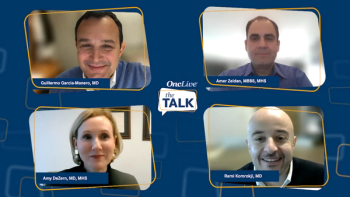
Following the ASH 2022 Annual Meeting, experts in hematologic oncology review updated data for luspatercept in lower-risk MDS.

Your AI-Trained Oncology Knowledge Connection!


Following the ASH 2022 Annual Meeting, experts in hematologic oncology review updated data for luspatercept in lower-risk MDS.

Hematologic oncology experts give an overview of first- and second-line treatment options for lower-risk myelodysplastic syndromes.
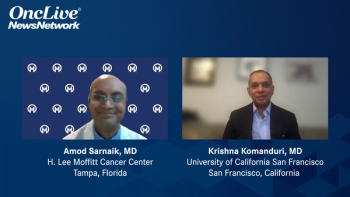
Closing out their discussion on TIL therapy, Drs Sarnaik and Komanduri identify existing barriers to TIL use in clinical practice and how the field might optimize patient access to these regimens.

Experts Amod Sarnaik, MD, and Krishna Komanduri, MD, consider lessons learned about TILs and CAR T-cell therapy in hematologic cancers, and how they anticipate TILs fitting into treatment paradigms for solid tumors.
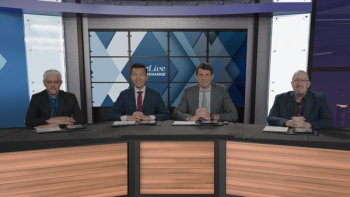
A comprehensive look at the role of bispecific antibodies, including glofitamab, in the treatment of mantle cell lymphoma.

Bijal D. Shah, MD, and Matthew J. Matasar, MD, discuss how they approach treating patients with MCL who rapidly progress on BTK inhibitors.

Shared insight from Amod Sarnaik, MD, and Krishna Komanduri, MD, on the halted DELTA-1 clinical trial of ITIL-168 in melanoma, followed by a focused discussion of SITC 2022 data on emerging TIL design and manufacturing strategies.

Expert perspectives on results from C-144-01, which utilized the TIL therapy lifileucel in the setting of metastatic melanoma, and situations in which the regimen might be used in clinical practice.
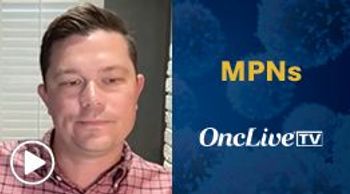
Andrew Kuykendall, MD, discusses the investigation of navitoclax plus ruxolitinib in myelofibrosis.
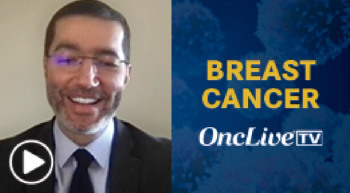
Ricardo Costa, MD, MSC, discusses the implications of the phase 3 KEYNOTE-522 trial trial in patients with high-risk, early-stage triple-negative breast cancer.
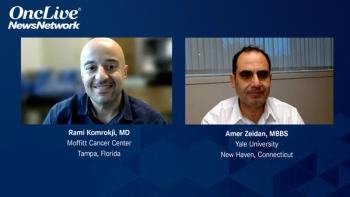
Amer Zeidan, MBBS, and Rami Komrokji, MD, offer closing remarks on recent advances in MF and MDS, and look towards the future of treatment.

A panel of experts in hematologic malignancies analyze clinical studies and real-world data of brexucabtagene autoleucel in mantle cell lymphoma.

Alexey V. Danilov, MD, PhD, presents a second patient profile of a 60-year-old patient with MCL, and the panel discusses using CAR T-cell therapy to treat MCL.
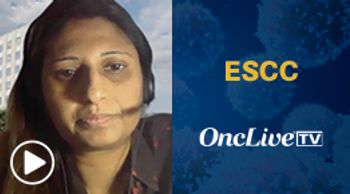
Rutika Mehta, MD, MPH, discusses which patients with esophageal squamous cell carcinoma may benefit most from the different frontline treatment options available and highlights key treatment developments with adjuvant immunotherapy plus chemotherapy.

A focused discussion on clinical trial data presented at SITC 2022 elucidating the biologic activity of tumor-infiltrating lymphocyte therapies.
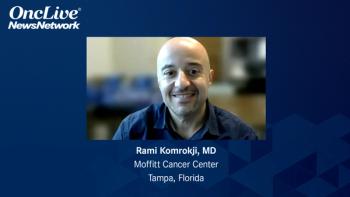
Dr Komrokji summarizes the remaining unmet needs in the treatment of MF, including suboptimal responses to JAK2 inhibitors, and comments on data from ongoing trials that may address these needs.

A comprehensive review of the treatment landscape for myelofibrosis (MF) and recent ASCO and ASH data updates on JAK2 inhibitors.

A comprehensive discussion on ways to approach treating patients with high-risk mantle cell lymphoma.

A detailed look at how to select the appropriate BTK inhibitor to treat patients with MCL and the potential role of the non-covalent BTK inhibitor pirtobrutinib in MCL.
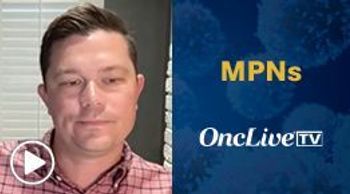
Andrew Kuykendall, MD, discusses the evaluation of momelotinib in patients with symptomatic and anemic myelofibrosis.

Shared insight on the benefits and drawbacks of using tumor-infiltrating lymphocyte therapy for treatment of solid tumors, as compared to chimeric antigen receptor (CAR) T-cell therapy.

Expert perspectives on the mechanism of action behind tumor-infiltrating lymphocyte (TIL) therapy and how it might address existing unmet needs in the treatment of solid tumors, including melanoma and non–small cell lung cancer.
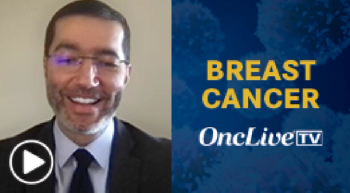
Ricardo Costa, MD, MSC, discusses the use of neoadjuvant pembrolizumab plus chemotherapy, followed by adjuvant pembrolizumab monotherapy, in patients with high-risk, early-stage triple-negative breast cancer.

Experts in hematology take a detailed look at new data on investigational therapies for higher-risk MDS, including the STIMULUS-MDS1 trial on sabatolimab.
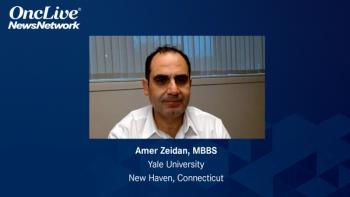
Amer Zeidan, MBBS, and Rami Komrokji, MD, discuss trial updates on oral hypomethylating agents, including data on dosing, for treatment of lower-risk MDS.

Experts in hematologic malignancies review the role of BTK inhibitors and other therapies in patients with relapsed/refractory mantle cell lymphoma.

A panel of experts in hematologic malignancies discuss the SHINE study, which looked at ibrutinib with bendamustine and rituximab in elderly patients with MCL.

The oncolytic vaccine CG0070 plus pembrolizumab demonstrated encouraging response rates and a tolerable safety profile in patients with non–muscle invasive bladder cancer unresponsive to Bacillus Calmette-Guérin.

Andrew Kuykendall, MD, discusses treatment considerations with ruxolitinib in myelofibrosis.
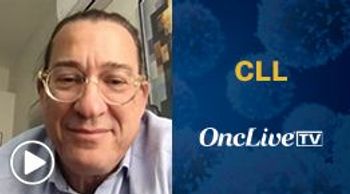
Javier Pinilla-Ibarz, MD, PhD, discusses the benefit of utilizing BTK inhibitors in chronic lymphocytic leukemia.